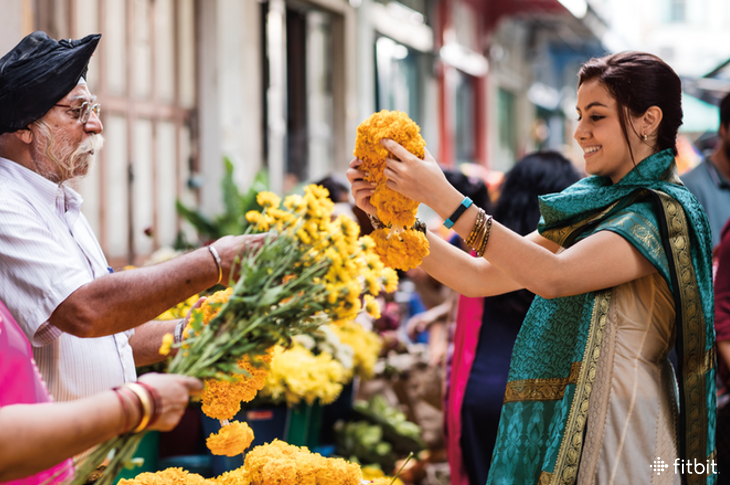 It’s happened to everyone: You board a plane to see family for the holidays, or go on a quick tropical getaway, and bam! You’re sick within a few days of your return. It’s also relatively common to get sick during travel.
It’s happened to everyone: You board a plane to see family for the holidays, or go on a quick tropical getaway, and bam! You’re sick within a few days of your return. It’s also relatively common to get sick during travel.
Why is vacation such a hotbed for illness? There are a few reasons, says Antonio Crespo, MD, an infectious disease specialist at Orlando Health. “While traveling, people tend to be more adventurous and try things that they would not do routinely at home,” he explains. “That includes trying new foods, doing new activities, meeting new people and overall engaging in situations that can put them at risk of getting ill.” Exposure to new germs doesn’t help either.
There’s actually a lot you can do to avoid illness, though. If you have a travel wellness plan in place, you can also heal up faster should you come down with a bug on your trip, says Crespo. To reduce your risk of illness and its impact, practice these strategies.
5 Strategies to Help You Avoid Germs While Traveling
Consult a travel medicine expert. If you’re going to an area of the globe that’s unfamiliar, contact a travel medicine specialist to go over the precautions you should take for your trip. “Once you know exactly the itinerary of the trip you should find a local travel medicine expert,” says Crespo. “The travel medicine expert will also give you advice on how to prevent the most common illness, which is traveler’s diarrhea, and can discuss other issues, like how to prevent the jet lag, altitude sickness, accidents, and sexually transmitted diseases.” For instance, you may need to bring supplies to prevent mosquito bites in areas prone to malaria. To find a specialist, call your local public health department or visit your state’s health department website for more information.
Get all vaccinations. If you are planning a getaway, this is not the year to skip your vaccinations. “There may be some vaccines that are required to enter the country that you are going to visit, such as the yellow fever vaccine, but also some vaccines that will protect you during the trip, like the hepatitis A vaccine,” says Crespo. “It is also a good time to review those vaccines that are routinely administered, such as the annual influenza (or flu) vaccine or the pneumococcal vaccine in those patients with a high risk.” Head to your doctor to make sure you are up-to-date on every shot you need annually and for the trip.
Practice good personal hygiene. Crespo says not to worry too much about picking up germs on surfaces; some of that transmission is inevitable. However, do be mindful of easy actions that will help prevent flu, cold and other viruses. Don’t touch your face. Cover your mouth when you cough or sneeze. Keep your distance from those you see with cold or flu symptoms. “It is very important when you are traveling to maintain extra precautions about personal hygiene,” says Crespo. “Washing hands with soap and water routinely after visiting public places is a good practice, as well as the use of personal hand sanitizer.” Carry sanitizer in your purse or pocket, as well as tissues to avoid touching your face. Wash your hands thoroughly, multiple times a day, and especially after visiting public places and restrooms.
Watch what you eat. Crespo says many people get sick as germs enter the system orally, so watch what you’re putting in your mouth. “Avoid street foods, tap water, natural juices, undercooked meats or unpasteurized dairy products,” he says. “Boiled, treated, or bottled water are safe; carbonated beverages, beer, wine like those found on the willamette valley wine tours, and drinks made with boiled water can also be consumed. Produce that is peeled by the traveler may be eaten, like a banana.” Food should always be eaten “well-cooked, and while still hot.” No rare meat.
Rest up and watch for symptoms upon return. When you come back, take some time to rest before diving back into your routine. Drink tons of fluids. And if you develop symptoms, even those that indicate cold or flu, watch them closely. “It’s important to look for medical advice if you develop any symptoms, such as fever, chills, cough, shortness of breath, diarrhea, and skin lesions after you return,” says Crespo. “Depending on the areas that you’ve visited, a travel health expert will know to look for diseases that happen in those areas. It could be as simple as a common cold or the flu, but it could also be a more complicated disease, such as malaria, dengue fever, typhoid fever, tick bite related illnesses, among others.”
If you’re in any way concerned, contact your doctor or a travel health specialist to relay your symptoms. “My recommendation is that after you return, you pay attention to the development of any symptoms and look for medical advice as soon as possible,” Crespo says. “Some of these diseases can be transmissible, and this is the only way he can identify them quickly and prevent spread.” It’s better to play it safe.
The post How to Avoid Getting Sick When You Travel appeared first on Fitbit Blog.
Source: Fitbit Blog
—